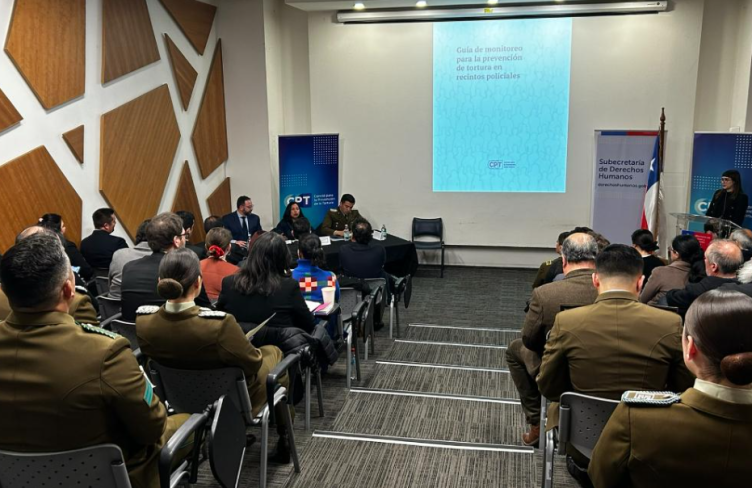
While recognising some have committed grave violations, police and law enforcement officials “are – or certainly can be – amongst the most important defenders of human rights in any State”, Danish Ambassador Dinesen said in his opening remarks to a conference on preventing torture in the OSCE region.
The online conference – ‘Torture Prevention in the Criminal Justice System: The Roles and Responsibilities of Police and Other Law Enforcement’, held on 2 June 2021 – discussed both the incentives towards torture and promising practices to prevent its occurrence.
The conference was convened to build on the 2020 OSCE Ministerial Decision reaffirming the absolute prohibition of torture. All 57 OSCE Participating States are bound by the UN Convention against Torture and restated their commitment to implement it fully and in good faith.
The Ministerial Decision also calls on States to abandon interrogation techniques that constitute torture, to implement effective legal and procedural safeguards, and to support the role of oversight bodies.
The conference brought together 150 participants from States, civil society and oversight bodies, including National Preventive Mechanisms, to discuss these issues and other measures highlighted in Eliminating Incentives for Torture in the OSCE Region: Baseline Study and Practical Guidance (2020), published by ODIHR and Fair Trial.
APT Secretary General Barbara Bernath, who moderated one of the panels, said: “Torture prevention works and is also in the interest of the police – but it requires concrete measures and open dialogue. From this, community trust in police institutions will grow.”
The rich discussions identified the following areas for action:
- Replace interrogation with interviewing: Keynote speaker Asbjorn Rachlew stressed this point and called on States to support the new Principles on Effective Interviewing for Investigations and Information Gathering;
- Invest in training: Operational training that integrates human rights is essential, including specific and ongoing training on effective interviewing;
- Ensure ownership and participation: Institutional changes is more effective when law enforcement officials are involved, including a bottom-up approach, and when the benefits for them are highlighted;
- Address impunity: Low levels of indictment and the lack of effective investigation into allegations of torture result in low rates of conviction and a sense of impunity;
- Integrate a gender-sensitive approach: The specific needs of women in detention must be addressed at all stages of the criminal justice system;
- Improve forensic services: Medical examination and forensics are important safeguards against torture and ill-treatment. They also play a crucial role in the investigation of allegations of torture, including psychological evidence.
The Conference was organised by the Permanent Representation of Denmark and the Permanent Representation of Switzerland to the OSCE, with the support of the OSCE 2021 Swedish Chairpersonship and the OSCE Office for Democratic Institutions and Human Rights (ODIHR). A report with recommendations will be produced.


